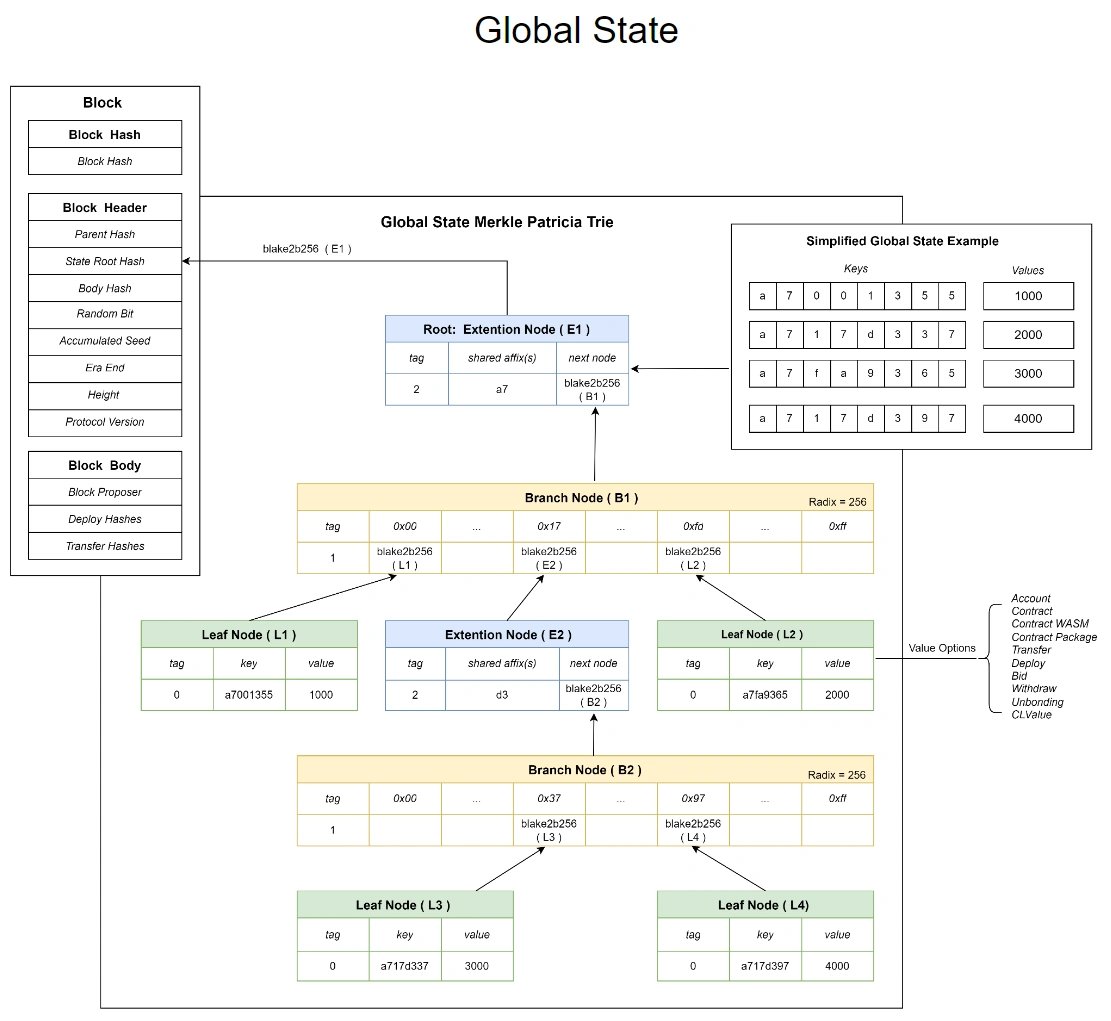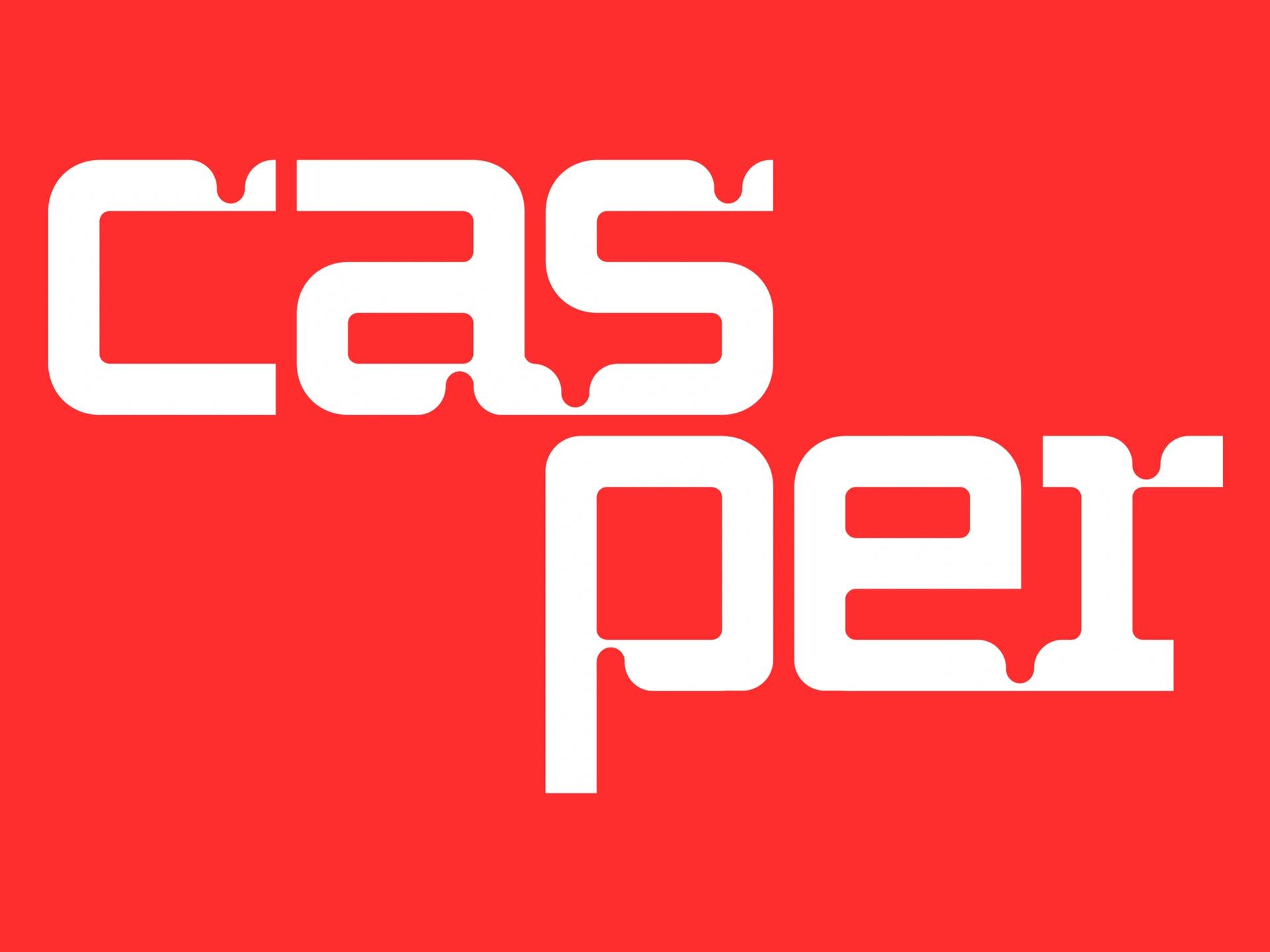Subscribe to wiki
Share wiki
Bookmark
Casper Network
The Agent Tokenization Platform (ATP):Build autonomous agents with the Agent Development Kit (ADK)
0%
Casper Network
Casper Network is a decentralized blockchain platform that uses a Proof-of-Stake consensus algorithm. It is designed to help enterprises employ blockchain-based products and services through the use of smart contract deployment and a developer-friendly platform. Casper Network was founded by Medha Parlikar and Mrinal Manohar and is powered by CSPR.[1][2]
Overview
Casper Network was founded in 2018 under CasperLabs, a software company focused on onboarding businesses to the blockchain space that was founded by Medha Parlikar and Mrinal Manohar. It employs an account-based model, where users interact with the network through accounts. When a user wants to perform an action on the network, such as transferring tokens or executing smart contracts, they send a Deploy, which contains the session code. Their native token, CSPR, powers the network as a utility token, being used for payment of fees, staking and delegating, and rewards. [2][3][4]
The network stores data in a structure called Global State, which represents the current state of the blockchain. It includes information such as account balances, smart contracts, and other relevant data. Users interact with the Global State by executing code in their Deploys. To measure the computational work performed during execution, the Casper Network uses the concept of Gas. Gas is a unit that quantifies the resources consumed by code execution. Each operation in the code consumes a certain amount of Gas, and users need to provide enough Gas to cover the computational cost of their Deploys. This ensures fairness and consistency across all nodes in the network. [3]
The Casper Network Runtime enables Wasm modules to interact with the host environment. Wasm modules contain the code that is executed within the blockchain. They can access the network's functionality and services through predefined APIs, allowing developers to achieve the desired effects within their smart contracts. [3]
Infrastructure
Global State
Global State is the storage layer of the Casper blockchain, functioning as a key-value store with additional permissions. It houses accounts, contracts, and associated data. Access to data within the global state is restricted based on permissions. [5]
To efficiently communicate changes to the global state, a Merkle trie data structure is used. The trie allows for the verifiable sharing of data by utilizing hash labels for nodes. Leaf nodes represent data, while non-leaf nodes hold hashes of child nodes. The Casper implementation of the trie has a radix of 256, allowing each branch node to have up to 256 children. A path through the trie is represented by an array of bytes and serialization links keys with corresponding paths. [5]
Nodes in the trie can be classified as leaves, branches, or extension nodes. Leaves contain key-value pairs, branches have hashes pointing to other nodes, and extension nodes compress paths by storing an affix and a hash pointing to another node. [5]
Extension nodes enable efficient traversal by compressing common prefixes, reducing the number of nodes to traverse. For instance, if multiple keys share the same initial bytes, an extension node can represent this shared prefix and point to the relevant branch node, avoiding unnecessary traversal. [5]

Highway Consensus Protocol
The Highway Consensus Protocol is an essential component of distributed networks, providing a method for entities to agree on a single, unchanging truth. It determines the validity of transactions, resolves conflicts, and finalizes blocks in the blockchain. Highway is a Byzantine Fault Tolerant (BFT) protocol used in Casper networks to ensure safety and liveness requirements. [6]
In the Casper Mainnet, Highway is employed as a Proof-of-Stake consensus protocol. Validators are selected through an on-chain auction contract, and they actively participate by staking CSPR tokens. Validators with a greater stake have more influence in achieving consensus. The protocol allows for up to one-third of nodes to be faulty or dishonest without compromising the network's functionality. The length of a round in Highway is dynamically determined to ensure effective message communication and timely block additions. [7]
The concept of eras in Highway reduces storage requirements and facilitates the rotation of validators. Each era lasts approximately two hours or 220 blocks. Older metadata is discarded, and equivocating nodes are banned, ensuring the integrity of the blockchain. Validators bid for spots in each era, and a lead validator proposes new blocks, which are gossiped about among the network. The block with the highest consensus becomes finalized and added to the chain. [8]
Finality is achieved when a block is confirmed and cannot be altered. Casper networks use summits, a pattern of messages, to detect finality. It provides a more efficient and computationally less expensive approach compared to previous criteria. [9]
CSPR
Casper Network's native cryptocurrency, CSPR, serves as the foundation of its ecosystem. It is designed as a utility-enabled token, fulfilling important functions within the network. CSPR is used to reward validators who actively contribute to the network's security and operation through the Proof-of-Stake consensus mechanism. Additionally, individuals can stake CSPR tokens to participate in the network as delegators and earn rewards generated by validators. Furthermore, CSPR is utilized for covering network fees associated with transactions and other activities on the Casper Network, ensuring its proper functioning and sustainability. [2][18]
Economics
Casper Network's economics can be divided into four layers: consensus, runtime, ecosystem, and macroeconomy. Each layer has its own set of incentives to ensure the proper functioning of the network. [10]
Consensus
Within the consensus layer, Casper Network employs the Highway variant of the CBC-Casper protocol. This protocol aims to ensure the network's safety and ability to continuously function. Validators have a pivotal role in upholding platform security by consistently constructing a chain of finalized blocks. The significance of validators, both in terms of protocol operation and security, is determined by their stake, which encompasses their own tokens as well as tokens delegated to them. Delegators contribute to the platform's security by delegating their tokens to validators, increasing their influence, and receiving rewards proportional to their delegations. The validator set for each era is determined through an auction mechanism, striking a balance between security and performance. Validators who make progress on block finalization receive rewards, which are shared with delegators. Inactive validators are temporarily deactivated and must signal their readiness to resume participation to rejoin the network. [11]
Runtime
The runtime layer of the Casper Network encompasses the deployment and execution of smart contracts, session code, and other computational activities on the global state. Validators play a critical role in this layer by constructing and validating new blocks that contain deploys, which alter the global state. Users engage with the network by executing session and contract code using the platform's computational resources. Transaction fees, referred to as gas charges, are imposed on users to compensate validators for performing these computations. These fees are granted to the block creator. Currently, gas usage is measured and metered, although a pricing mechanism for gas has yet to be implemented. The platform currently operates on a first-in, first-out (FIFO) deploy ordering mechanism. [12]
Ecosystem
The ecosystem layer concentrates on the design and operation of decentralized applications (dApps) within the Casper Network. Casper Labs, the organization behind the network, collaborates with potential dApp developers and partners to support their projects. Extensive resources are allocated to researching the economics of potential dApps, ensuring their viability and success within the network. While the specific implementation and user interface of ecosystem features may vary, this layer plays a crucial role in fostering innovation and driving growth within the Casper Network ecosystem. [13]
Macroeconomics
The macroeconomics of Casper Network refers to the activities occurring in the cryptocurrency markets. The native cryptocurrency of Casper Network, CSPR, is treated as a cryptographic asset within these markets. Unlike "digital gold" tokens like Bitcoin, Casper employs a distinct token economics model. The tokens are minted based on a fixed initial basis and distributed to genesis validators, employees, and community members, and reserved for future distributions. The total token supply grows at a predetermined annual percentage rate. This inflationary approach aims to overcome two notable drawbacks of enforced scarcity. Firstly, inflation incentivizes token holders to stake or delegate their tokens, aligning with the network's objective of encouraging active participation. Secondly, as Casper Network functions as a general-purpose computing platform, token supply supports actual economic activity on the platform and discourages hoarding tokens solely for speculative purposes. These macroeconomic principles aim to foster a robust and thriving ecosystem within the Casper Network. [14]
CasperLabs
Casper Labs is a blockchain technology company specializing in the development and advancement of the Casper blockchain platform. Their focus lies in providing scalable and secure blockchain infrastructure for enterprises and developers to build decentralized applications and digital assets. [15]
Casper Labs offers a range of services and tools to support developers, enterprises, and organizations in leveraging blockchain technology. These include the Casper Blockchain Platform, professional services, such as consulting, architecture design, development support, and technical training, to assist businesses in navigating blockchain implementation. In addition, Casper Labs provides a suite of developer tools, including SDKs, APIs, documentation, and tutorials, to simplify the process of building and deploying decentralized applications on the Casper blockchain. [16]
Casper Accelerate Grant Program
The Casper Network has established an Accelerate Grant Program to support and encourage innovative projects within its blockchain ecosystem. This program aims to provide financial resources, technical support, and guidance to individuals and teams working on diverse initiatives that contribute to the growth and development of the network. [19]
Through the Accelerate Grant Program, Casper Network offers grants to selected applicants, empowering them to explore new ideas, build decentralized applications, create smart contracts, and enhance the overall functionality and usability of the network. The program welcomes projects across various domains, such as DeFi, NFTs, supply chain, gaming, and more. [19]
Applicants accepted into the program receive financial support to fund their projects, enabling them to dedicate their time and resources to further their innovative ideas. In addition to financial assistance, the program provides technical expertise and guidance from the Casper Network team, ensuring that grant recipients have access to the necessary tools and knowledge to succeed. [19]
Team
Executive Team
- Mrinal Manohar: CEO & Co-Founder
- Medha Parlikar: CTO & Co-Founder
- Matt Schaffnit: CFO & COO
- Patrick Storchenegger: Chairman of the Board
Management
- Daniel Biesuz: Board Director
- Steve Careaga: Managing Director Growth
- Mark Greenslade: Head of Research and Development
- Matt Schaffnit: Director of Operations and Finance
- Stephen Duignan: Head of Growth
Technical Team
- Mel Thomas Padden: Core Developer
- Javier Vicente Gonzalez: Developer Advocate
- Dylan Ireland: Developer Advocate
- Andrzej Broński: Developer Advocate
- Jesper Hallager: Senior Business Analyst
Marketing and Communications
- Joe Benso: Director of Communications
- Jenny Brawand: CRM Manager
- Joe Davies: Community Director
- Olga Litvinenko: Marketing Generalist
- Nicolas Rau: Senior Communications Manager
- Louise Zhang: Community Director of China
- Berkay Soylu: Content Writer
Project Management
- Piotr Dziubecki: Program Director
- Devendran Muthukumaramani: Technical Project Manager
- Marjan Shabani: Technical Project Manager
- Bartlomiej Stasik: Technical Project Manager
- Adrian Wrona: Technical Project Manager
Community and Social Media
- Chidindu Ojimadu: Community Manager
- Devashri Kulwal: Social Media Manager
Support and Operations
- Skyler Willcockson: Finance Intern
- Jonas Pauli: R&D Assistant
See something wrong?
The Agent Tokenization Platform (ATP):Build autonomous agents with the Agent Development Kit (ADK)
